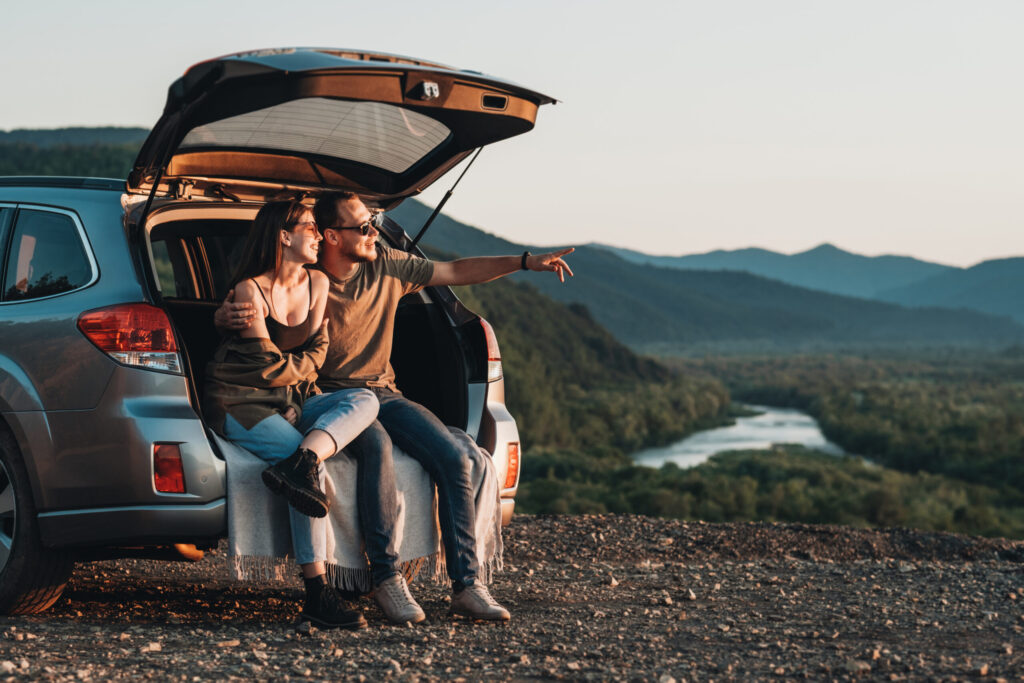Exploring the vast landscapes of the country by road is a dream for many travelers. Whether you’re driving a car, RV, motorcycle, or even a boat, the open road offers a sense of freedom and adventure that is unparalleled. This article will guide you through the essentials of planning a road trip, ensuring a memorable and hassle-free journey.
Planning your ultimate road trip
Choose your vehicle
Car: Perfect for couples or small families. Offers comfort and convenience with ample trunk space for luggage. Modern cars come equipped with advanced safety features, GPS navigation, and infotainment systems, making long drives enjoyable and safe.
RV: Ideal for long trips and large families. Provides the luxury of home on wheels, including sleeping quarters, a kitchen, and a bathroom. RVs are perfect for camping and allow you to stay at scenic spots without the need for hotels.
Motorcycle: Great for solo adventurers or couples. Experience the thrill of the open air and the intimacy of the road. Motorcycles are fuel-efficient, easy to park, and can navigate through traffic more smoothly than larger vehicles.
Boat: Best for exploring coastal areas and rivers. Offers a unique perspective of the country, allowing access to remote islands, waterways, and lakes. Boats equipped with cabins can serve as both transportation and accommodation.
Prepare your vehicle
Maintenance check: Ensure your vehicle is in top condition and free of defects or constant issues. Check the engine, brakes, tires, and fluid levels. For RVs and boats, inspect the plumbing and electrical systems.
Emergency kit: Pack essentials like first aid supplies, tools, spare tires, jumper cables, and emergency contact numbers. Include items specific to your vehicle type, such as boat repair kits or motorcycle tire patches.
Comfort items: Bring pillows, blankets, snacks, and entertainment for long drives. For RVs, consider adding portable fans or heaters depending on the season.
Plan your route
Map your journey: Use GPS and maps to plan your route. Highlight key attractions, scenic stops, and overnight accommodations. Consider alternative routes for flexibility.
Accommodations: Book your stays in advance, especially during peak travel seasons. Look for RV parks, campgrounds, or hotels that offer parking for motorcycles and trailers.
Local cuisine: Research local eateries to enjoy regional delicacies along the way. Plan stops at famous diners, food trucks, and farm-to-table restaurants for a true taste of the area.
Pack wisely
Essentials: Pack clothing suitable for varying weather conditions, toiletries, and any personal medications. For motorcyclists, pack lightweight, durable gear that can be easily stored.
Entertainment: Bring books, games, music, and movies to keep everyone entertained during long stretches. For RV trips, consider bringing portable outdoor gear like chairs and a grill for campsite relaxation.
Documentation: Keep important documents like your driver’s license, registration, insurance, and any necessary permits or maps handy. For boaters, ensure you have your boating license and relevant waterway permits. If your vehicle undergoes any repairs while on the road, LemonLawFirm.com advises keeping all records and receipts for future reference.
Safety first
Health precautions: Carry a well-stocked first aid kit and know basic first aid procedures. Stay informed about the health guidelines and restrictions of the areas you will visit.
Vehicle safety: Secure all loose items in your vehicle to prevent accidents. Use car seats for young children and ensure everyone wears seatbelts.
Stay alert: Avoid driving when tired and take regular breaks to rest. Share driving responsibilities if traveling with others to stay fresh and alert.
Dealing with vehicle issues on the road
No matter how well you prepare, vehicle issues can arise during your trip. If you’re dealing with persistent problems with a new or leased vehicle, Lemon Law can be your safeguard.
Coverage: Lemon Law typically covers new and leased cars, RVs, motorcycles, and boats that have recurring issues despite multiple repair attempts.
Criteria: The vehicle must have significant defects affecting its use, value, or safety, and these issues must persist after a reasonable number of repair attempts.
Process: To file a Lemon Law claim, keep detailed records of all repairs and communications with the manufacturer or dealer. Consult with a Lemon Law attorney to understand your rights and navigate the claim process.
Tips for a smooth trip
Stay flexible: Unexpected detours can lead to the most memorable experiences. Embrace spontaneity.
Stay safe: Follow traffic rules, take regular breaks, and stay hydrated.
Stay connected: Share your itinerary with friends or family, and keep a charged phone for emergencies.
Conclusion
Road tripping across the country is a fantastic way to explore diverse landscapes and create lasting memories. With proper planning and awareness of your rights under Lemon Law, you can embark on your adventure with confidence. So pack your bags, rev up your engine, and hit the open road for an unforgettable journey.
Happy travels!
The article A guide to American road trips: From highways to waterways first appeared in TravelDailyNews International.
